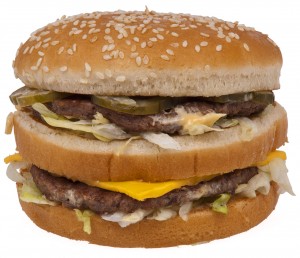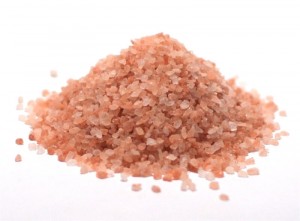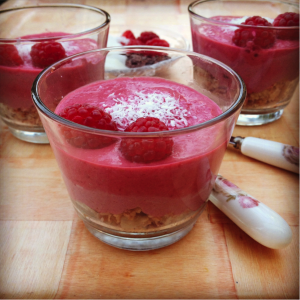Each of us pays a price every day for how we live in the world. This holds true for most areas of our lives, but I’m most concerned here about the realm of health and wellness. As we walk through the world, every day we make choices about how we want to live. Are the choices you’re making well thought out? Intentional? Aimed to maximize your ability to live up to the limits of your full biological potential? It is so easy to be sloppy about our everyday habits; but, it is really not that difficult to change our habits and patterns to those that will help us to achieve what we want most in life. And, if you stop to think about it, how could better health and vitality not be one of the top items on your list? You can’t achieve most of your other goals without it.
Here are my top 5 suggestions for lifestyle changes that would give you the biggest pay-off for the least amount of effort.
 Choose pure water as your most-frequently consumed beverage. If you’re consuming more than 1-2 cups of coffee a day, or drinking any highly sweetened beverages (sodas, bottled teas, straight fruit juice), your body would perform much better on many levels with a switch to plain water (a squeeze of fresh lemon or lime juice is fine, and glass-bottled mineral water is also a great choice). There’s a rough formula that is often recommended: 1/2 of your body weight, as measured in pounds, should be drunk daily, as measured in ounces. i.e. a 160 # person should drink at least 80oz water/day.
Choose pure water as your most-frequently consumed beverage. If you’re consuming more than 1-2 cups of coffee a day, or drinking any highly sweetened beverages (sodas, bottled teas, straight fruit juice), your body would perform much better on many levels with a switch to plain water (a squeeze of fresh lemon or lime juice is fine, and glass-bottled mineral water is also a great choice). There’s a rough formula that is often recommended: 1/2 of your body weight, as measured in pounds, should be drunk daily, as measured in ounces. i.e. a 160 # person should drink at least 80oz water/day.- Choose more vegetables! Look at your plates (or paper or plastic wrappers). For most of us, at least half of what’s eaten at most meals should be vegetables (and I’m not including highly starchy vegetables like potatoes, or processed and sweetened vegetables like ketchup!). There’s a new genre of chefs who are being dubbed as, not vegetarians but, “veggie-centric”. I like that! I personally believe that most of us will function optimally with some amount of animal protein, but it definitely does not need to be the hugh amounts of flesh proteins that so many people consume regularly. Nor do large portions of starchy or refined, processed carbohydrate foods serve us well. Shift your eating patterns towards consuming a variety of vegetables throughout each day….raw and cooked (not just salads, folks!). Ideal portion sizes of animal proteins and starches can vary from individual to individual, but keeping a variety of vegetables as your core can have great payoffs in health and weight management.
 Use good fats in your kitchen, and avoid eating foods prepared with the worst fats – hydrogenated or partially-hydrogenated oils and rancid or spoiled fats and oils. Good fats include extra virgin olive oil, coconut oil, unrefined oils from nuts and seeds, avocado. A good quality coconut oil is great for cooking at varying temperatures; olive oil should only be used for low temperature cooking. Keep your nuts and seeds – raw, preferably (and the unrefined oils from them) stored in the refrigerator….the healthy oils contained within them easily become rancid or spoiled with exposure to heat and air.
Use good fats in your kitchen, and avoid eating foods prepared with the worst fats – hydrogenated or partially-hydrogenated oils and rancid or spoiled fats and oils. Good fats include extra virgin olive oil, coconut oil, unrefined oils from nuts and seeds, avocado. A good quality coconut oil is great for cooking at varying temperatures; olive oil should only be used for low temperature cooking. Keep your nuts and seeds – raw, preferably (and the unrefined oils from them) stored in the refrigerator….the healthy oils contained within them easily become rancid or spoiled with exposure to heat and air.- Buy all the vegetables and fruits on the Dirty Dozen list in organic form. These 12 vegetables and fruits have the highest levels of pesticides of all produce (in the U.S.), and if you use your organic food dollars to spend on these, you will be greatly limiting your daily intake of pesticides….a definite non-essential daily nutrient.
- Start (or continue) to evaluate your environment and use of personal care products to decrease your daily exposure to the many chemicals and toxins that surround us. Many people might be surprised to see this on my top 5 list – and even 5 years ago, this might not have been. But the more I learn, and experience with my clients, the more I believe that the chronic, low level amounts of so many chemicals and toxins that ALL of us are taking in daily, are accumulating in our cells and tissues. They are then interfering with normal cellular functioning. Our natural ability to detoxify and eliminate these many problematic compounds is overtaxed. Eating and drinking nutrient-dense foods and beverages is helpful in supporting our body’s detoxification systems, but we can’t keep up with the workload! We must change our habits and daily choices to decrease the amount of chemicals that have the opportunity to get into our bodies and interfere with normal functioning.
For those who have already traveled a good distance down this path, in a few weeks I’ll offer suggestions for the next 5 habits to work on.




